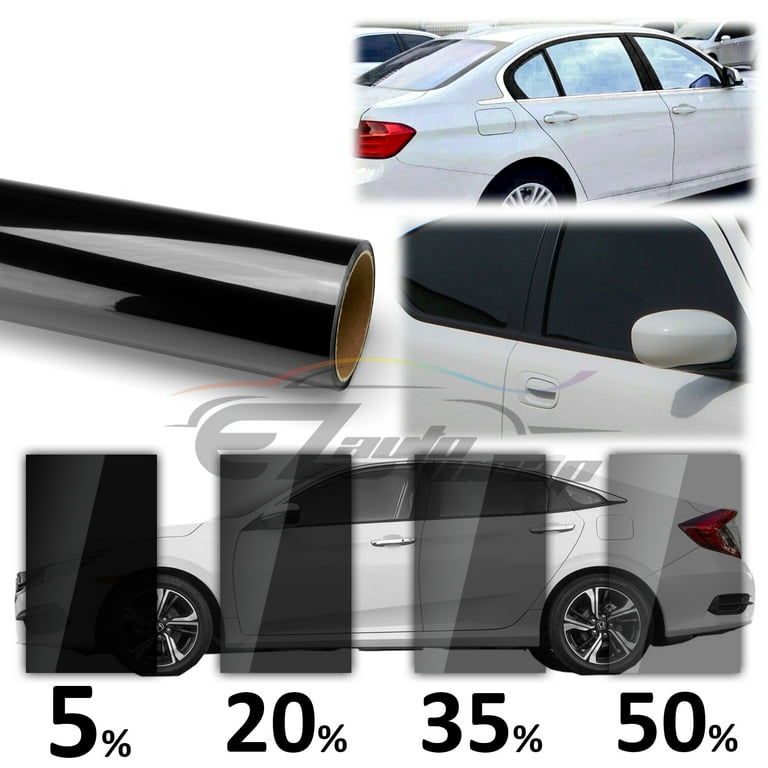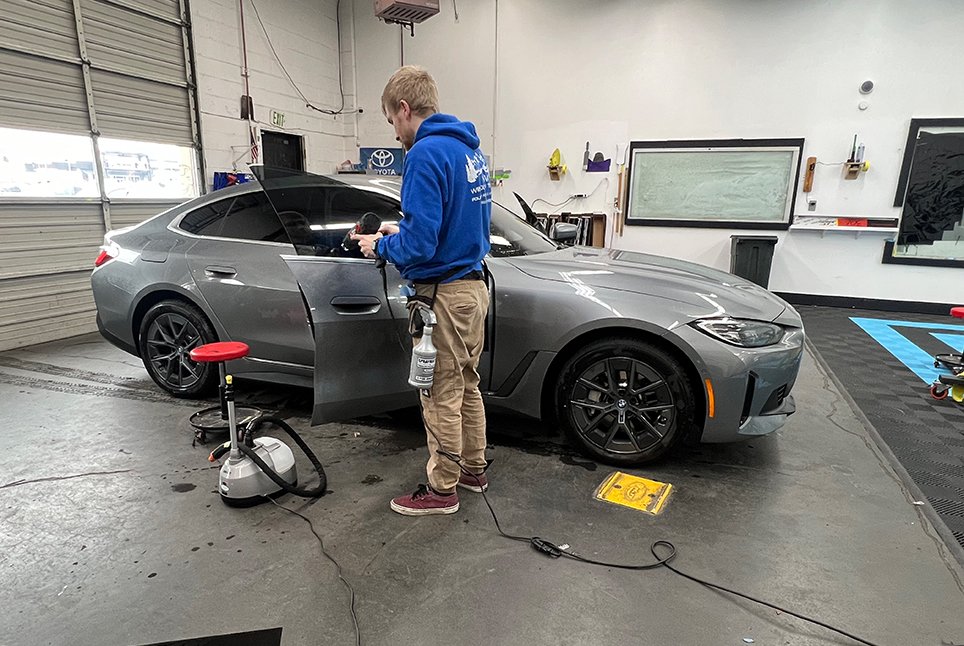Window Tinting Rules and Standards: What You Need to Know Before Tinting Your Auto
Before waging home window tinting for your vehicle, it is vital to acquaint yourself with the diverse regulations and guidelines that control this technique across different states. These laws determine the allowable degrees of color darkness, often determined by noticeable light transmission (VLT) percents, and consist of details specifications for front windscreens aimed at ensuring roadway safety. In addition, certain jurisdictions might supply clinical exceptions for people with qualifying problems. Recognizing these complexities can conserve you from prospective lawful implications, however what are the details rules in your state?
Review of Home Window Tinting Rules
Home window tinting legislations are regularly based on variant across various jurisdictions, showing neighborhood guidelines and safety and security factors to consider. These legislations determine the permitted levels of tint darkness and reflectiveness on vehicle home windows, making certain that motorists keep sufficient visibility while likewise shielding versus dangerous UV rays and heat.
A lot of policies identify home window tinting based on the Visible Light Transmission (VLT) percentage, which indicates the amount of light that can go through the window. Typically, lower VLT percentages signify darker colors. Regulations frequently separate in between the front, side, and back windows, with stricter restrictions related to the front windscreen to enhance security for both the motorist and other road users.
Compliance with home window tinting regulations is critical, as offenses can result in fines, mandatory removal of the color, and prospective boosts in insurance policy premiums. It is necessary for lorry owners to familiarize themselves with neighborhood regulations before continuing with window tinting installations.
State-by-State Color Rules
Understanding the certain home window tinting regulations in each state is vital for automobile proprietors seeking to abide by the legislation. Each state in the united state has actually developed its very own set of regulations governing home window tinting, which can differ significantly. These regulations typically dictate the allowable degrees of color darkness, the kinds of windows that can be tinted, and any kind of clinical exemptions that may use.
For example, states like California have rigorous restrictions on color darkness for front home windows, while others, such as New Mexico, may enable darker tints. In addition, specific states mandate specific exposure portions for numerous home windows, consisting of the windshield, front side windows, and back home windows. It is essential for auto proprietors to familiarize themselves with their state's laws to avoid prospective fines or penalties.
In addition, some states may call for a qualification sticker label to be put on colored windows, indicating compliance with state regulations. Failing to abide by these guidelines not only risks legal repercussions however can also influence safety and security and exposure while driving. Therefore, lorry owners must conduct detailed study or seek advice from neighborhood authorities to ensure complete understanding and compliance with state-by-state color regulations.
Allowed Color Types and degrees
Many lorry owners may be shocked to discover that enabled tint levels and types vary commonly throughout various states. Each state has actually developed its own laws pertaining to the allowable darkness and reflectivity of window color, frequently gauged by Visible Light Transmission (VLT) percents. VLT describes the amount of light that can travel through the colored windows; hence, a lower percentage indicates a darker tint.

Moreover, the kinds of color products enabled can differ, with some states restricting metal or mirror-like finishes. It is necessary for lorry proprietors to acquaint themselves with their state's particular laws to make sure conformity. Non-compliance can result in penalties, required elimination of the color, or various other legal repercussions, making it necessary to recognize these laws prior to waging setup.
Medical Exemptions for Tinting
While not all states offer allocations for medical exemptions relating to window tinting, those that do recognize the requirement for certain people to improve visibility and comfort as a result of medical conditions. Numerous medical problems, such as lupus, skin cancer, and specific eye conditions, can render people especially conscious sunshine. Subsequently, these individuals might require darker tints to secure themselves from unsafe UV rays and glare.

It is necessary to keep in mind that despite a medical exception, there might still be restrictions on the level of color enabled. Conformity with state legislations makes certain that people are both protected and within legal limitations. Those thinking about medical exemptions must call their neighborhood Division of Electric motor Autos or equal authority to recognize the requirements and procedures required to look for an exemption effectively.
Penalties for Non-Compliance
Falling short to adhere to window tinting regulations can cause considerable fines, which vary by state. Regulation enforcement agencies are empowered to issue citations for cars that do not stick to the specified tinting laws. These penalties typically consist of fines, which can range from moderate total up to numerous hundred bucks, relying on the extent of the offense and the state concerned.
In some territories, repeated offenses may cause escalating penalties or added fines, such as necessary court looks. Non-compliance may demand the elimination of unlawful tinting, typically at the owner's expenditure. In severe cases, habitual offenders might encounter suspension of their car enrollment until compliance is attained.
Furthermore, insurance policy effects may occur from getting several citations for window tint offenses. Insurance companies might check out such infractions as a sign of riskier habits, potentially resulting in enhanced costs or problem in coverage.
To prevent these penalties, it is vital you could try this out for vehicle owners to familiarize themselves with their local window tinting regulations and make certain that their vehicle complies (Window Tinting). This proactive technique not just prevents lawful ramifications however likewise advertises roadway security
Conclusion

A lot of policies categorize home window tinting based on the Visible Light Transmission (VLT) portion, which indicates the quantity of light that can pass through the home window. Compliance with window tinting guidelines is important, as violations can result in penalties, obligatory removal of the tint, and potential increases in insurance coverage costs.Comprehending the details window tinting policies in each state is essential for lorry owners looking for to comply with the legislation. These regulations typically determine the allowable degrees of tint darkness, the types of home windows that can be tinted, and any kind of medical exemptions that may apply.
For instance, states like The golden state have stringent restrictions on color darkness for front home windows, while others, such as New Mexico, might enable darker colors.
Comments on “Discover the Perks of UV Security with Car Window Tinting”